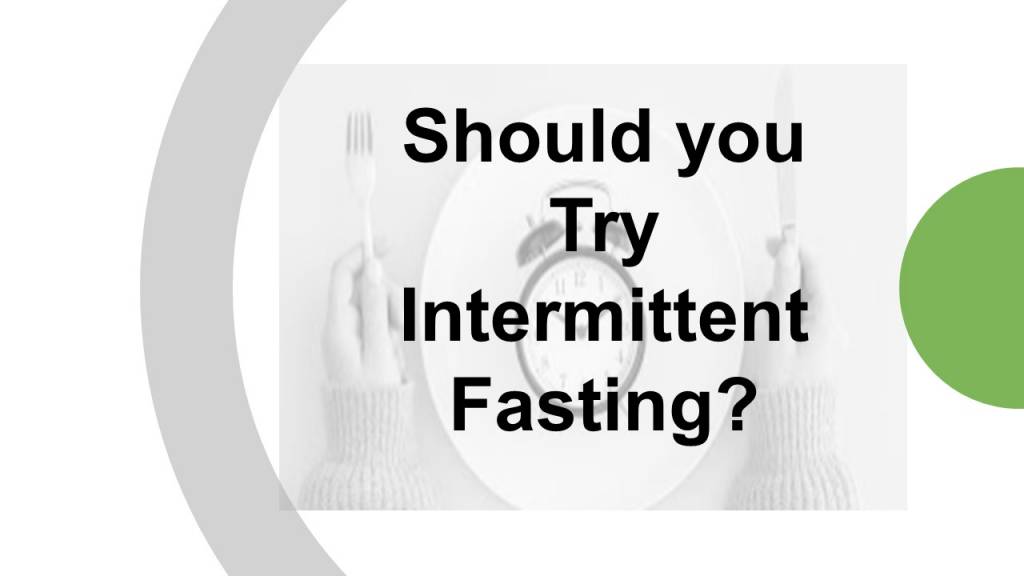
Intermittent fasting is currently one of the world’s most popular health and fitness trends. People are using it to lose weight, improve their health and simplify their lifestyles. Many studies show that it can have powerful effects on your body and brain and may even help you live longer. Intermittent fasting is how you manage your eating. It is a schedule that cycles between not eating and eating. Cycles of intermittent fasting can be hourly or daily. It may be fast for reasons such as religion, diet, or potential health benefits. During intermittent fasting, people may wish to continue or begin exercising. It is possible to exercise while fasting, but precautions are necessary.
Intermittent Fasting Methods
There are several different ways of doing intermittent fasting all of which involve splitting the day or week into eating and fasting periods. During the fasting periods, you eat either very little or nothing at all. These are the most popular methods:
- The 16/8 method – Also called the Lean gains protocol, it involves skipping breakfast and restricting your daily eating period to 8 hours, such as 1–9 p.m. Then you fast for 16 hours in between.
- Eat-Stop-Eat – This involves fasting for 24 hours, once or twice a week, for example by not eating from dinner one day until dinner the next day.
- The 5:2 diet – With this method, you consume only 500–600 calories on two nonconsecutive days of the week but eat normally the other 5 days.
By reducing your calorie intake, these methods should cause weight loss if you don’t compensate by eating much more during the eating periods. Many people find the 16/8 method to be the simplest, most sustainable, and easiest to stick to. It is also the most popular.
Why exercise while fasting
A person should take necessary precautions when exercising during fasting. People who are fasting can partake in exercise. Some people exercise while fasting as they believe it has potential health benefits. These include:
Weight loss – When people eat carbohydrates, the body converts this into a type of sugar known as glucose. The body stores glucose as glycogen. Research suggests that during periods of fasting, glycogen stores are empty. This means the body starts to burn fat Trusted Source for energy during exercise, which may help weight loss. One study found that exercising in a fasted state also led to a higher fat loss than in people exercising after a meal.
A 2014 study found that people who fasted overnight and exercised did not lose more weight than people who ate before exercise. Another study in mice concluded that fasting with or without exercising led to effective weight loss in mice. To lose weight, the calories someone consumes must be less than those they burn each day. Fasting may help a person lose weight as it controls the number of calories they eat.
Anti-aging – A 2018 study Trusted Source found that fasting and exercise may slow down aging and disease processes. This is because fasting and exercise may cause changes in metabolism.
Health Benefits
Many studies have been done on intermittent fasting, in both animals and humans. These studies have shown that it can have powerful benefits for weight control and the health of your body and brain. It may even help you live longer. Here are the main health benefits of intermittent fasting:
- Weight loss – As mentioned above, intermittent fasting can help you lose weight and belly fat, without having to consciously restrict calories.
- Insulin resistance – Intermittent fasting can reduce insulin resistance, lowering blood sugar by 3–6% and fasting insulin levels by 20–31%, which should protect against type 2 diabetes.
- Inflammation – Some studies show reductions in markers of inflammation, a key driver of many chronic diseases.
- Heart health – Intermittent fasting may reduce “bad” LDL cholesterol, blood triglycerides, inflammatory markers, blood sugar and insulin resistance — all risk factors for heart disease
- Cancer: Animal studies suggest that intermittent fasting may prevent cancer.
- Brain health – Intermittent fasting increases the brain hormone BDNF and may aid the growth of new nerve cells. It may also protect against Alzheimer’s disease.
- Anti-aging – Intermittent fasting can extend lifespan in rats. Studies showed that fasted rats lived 36–83% longer.
Is intermittent fasting safe?
Some people try intermitting fasting for weight management, and others use the method to address chronic conditions such as irritable bowel syndrome, high cholesterol or arthritis. But intermittent fasting isn’t for everyone.
Before you try intermittent fasting (or any diet), you should check in with your primary care practitioner first. Some people should steer clear of trying intermittent fasting:
- Children and teens under age 18.
- Women who are pregnant or breastfeeding.
- People with diabetes or blood sugar problems.
- Those with a history of eating disorders.
Keep in mind that intermittent fasting may have different effects on different people. Talk to your doctor if you start experiencing unusual anxiety, headaches, nausea or other symptoms after you start intermittent fasting. People with certain medical conditions should not fast without consulting with a doctor first. Under supervision of our medial team, we can customize a package that is right and safe for you. Click here to book your initial and free consultation >>>


